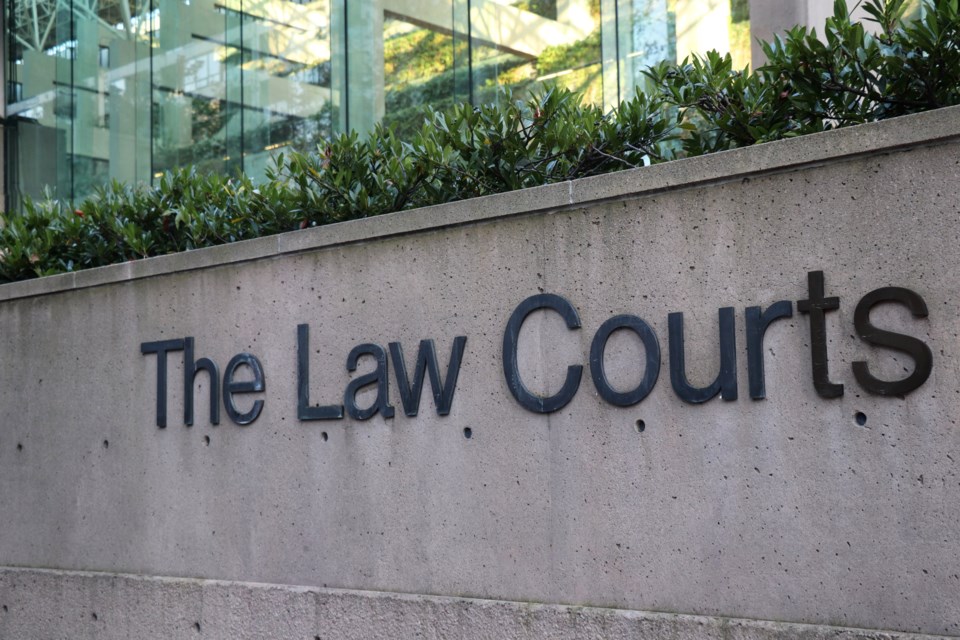A former Mountie who was first on scene at a high-profile 2011 Armstrong murder says a number of documents he obtained after being subjected to a related RCMP code-of-conduct investigation have led him to mistrust the national police force.
Milan Ilic, a former constable, has brought forward a civil case against the RCMP in B.C. Supreme Court, seeking damages from the police for psychological injuries suffered as a result of the investigation. The trial began on Monday at the Kamloops Law Courts.
Ilic told court Wednesday that information he obtained through filing an Access to Information and Privacy (ATIP) request gave him an understanding of what happened behind the scenes as the 14-month code of conduct investigation took place.
"I know how the RCMP work," Ilic said.
"The system is flawed. And people like me are the ones that take the brunt of it — and to me, it’s unacceptable."
Ilic was the first police officer to arrive at the scene of Armstrong teen Taylor Van Diest’s murder on Oct. 31, 2011. A witness said she saw Ilic toss away a bottle he pulled from his patrol jacket, but Ilic said the item he threw was a box of pens.
Ilic was accused of lying in his testimony during the 2014 murder trial, and to his superiors during the subsequent code of conduct investigation launched by the RCMP.
Barry Carter, Ilic’s lawyer, has told court police eventually determined the allegations against Illic weren’t substantiated — but the investigation has taken its toll on the man.
On Wednesday, Ilic responded to questions from Carter and was cross-examined by a lawyer representing the defendant — the Province of B.C.
Carter asked Ilic to summarize what new information he obtained from the ATIP documents.
Ilic said he found that the RCMP looked into suspending him without pay, and that the witness at the scene of the murder told police it was possible Ilic had thrown a box of pens, not a bottle.
"One of the things that I saw was that when my investigation was concluding, the RCMP and people were having conversations about a third allegation," Ilic said.
"They were going to come after me for neglect of duty because 'On a balance of probabilities Milan wasn't lying and we can still go after him for neglect of duty because he contaminated a crime scene.'"
Ilic alleges the words of the witness were “twisted" to make it seem like it was a liquor bottle that was discarded.
“A woman said that I tossed the bottle in a ditch. She didn't know what it was. The RCMP said it was a liquor bottle that she described. But that's not what she said, she never said that,” he said.
“They twisted it. They put their own words into it. And they made me they made me look like I was — and they didn’t say that, nobody said you were drinking — but I know the expression in the RCMP, I’m guilty before I’m innocent, and who’s there to defend me?”
Court heard that officers arrived at Ilic’s home to serve him documents containing the code of conduct allegations in April 2014.
Over the course of the investigation, Ilic said, he was asked to take a polygraph test. He said he initially agreed but changed his mind after doing his own research on polygraphs.
Ilic said he asked to take a private polygraph test, but was told police would only accept an RCMP polygraph. After learning this, Ilic said didn’t want to proceed with the polygraph, and he wasn’t asked again about taking the test.
During cross-examination, Ilic was asked if he had done his own research about the RCMP act and what the code of conduct process entailed as the investigation was ongoing.
Ilic said he didn’t research those details at the time.
“My mind was everywhere, not reading about all these things,” Ilic said.
Court heard that the code of conduct process ended in the summer of 2015 when Ilic received a letter saying that no further action would be taken on the matter.
Court was presented with a transcript that indicated at one time, Ilic was questioned about the code of conduct investigation and was asked if he felt there was a deliberate attempt to harm his career. At the time of that conversation, Ilic said no.
Ilic told court he felt the answer he provided was truthful at that time, but has since changed his mind after years of researching what happened since the investigation was launched in early 2014.
Ilic said he has remained off work as a police officer on sick leave until a voluntary discharge in 2019, and is seeing a psychologist weekly.
He said he suffers from Post Traumatic Stress Disorder, anxiety and sleep disruption due to the murder, the trial and the resulting code of conduct investigation, which he says made his PTSD “100 times worse.”
“I was demoralized that people ... in positions of sergeants would take things out of context,” he said.
The trial, in front of B.C. Supreme Court Justice Carla Forth, is expected to end in May.




